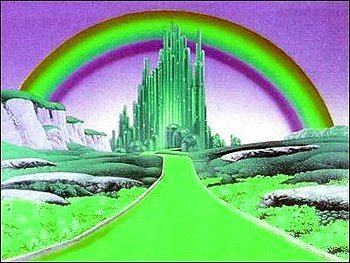Math's Pluses and Minuses
by Melissa
(Talladega, AL, US)
Well, math helps with a lot of things. For instance, it helps a mind more able to solve problems if it can convert a problem into a math problem. Different aspects of the variable become the numbers and the processes become the equation itself. Sometimes, processing a problem in my mind as a math problem helps me not only come up with a definite solution, but it also helps me come up with all probabilities of possible answers to said problem.
At the same time, some of the math used in the world today is entirely too much. It is not often that you see the quadratic formula in a fast food restaurant or running your own business. I can do these formulas now without thinking, but not once have I seen it used in every day life.
So the way I see it, math is useful in some ways, but I do not see a use for more complicated formulas in everyday life.
Barry's Response - That's not all, Melissa. You can also have fun with math. Math teaches us how to think structured and logically, which we need in this modern world. It's just one of many. There's also the ability to write and speak, handle money strategically, and relate to people.
Search this site for more information now.
The enigmatic allure of mathematics,
use it to reach the secrets of the cosmos, and as a powerful mental tool to solve the mysteries we encounter. My dear readers, math is the chalice of simplicity and complexity, a double-edged sword that can cut through ignorance and usher us into enlightenment (or drown us in bewildering equations.)
For a moment, think about problem-solving as a dance of the intellect. We transform the puzzle into numbers and variables with math as our partner. It's like an incantation, making the abstract concrete. Chaos is tamed into elegant, orderly equations. The unknown is just a note waiting to be played in this symphony of logic.
Mathematics isn't just a means to an end - it's a way to get there. You're on a mission from God. When we look at a problem as a math problem, we're not just looking for a single answer; we're embracing the myriad possibilities numbers can reveal. It's a labyrinth of potential solutions where the equations are our guides.
Let's look at the paradox. How often do we stumble upon the quadratic formula or have to solve complex integrals? It's true; some mathematical constructs seem unpractical. You don't find yourself calculating eigenvalues or factoring polynomials while balancing the books for your small business every day.
Think a bit more on this. Math isn't just about its immediate utility. It's about the doors it opens in your head. We stretch our cognitive horizons when it comes to grasping and manipulating intricate mathematical concepts. By training our brains to think critically, we can solve problems today and tackle enigmas tomorrow.
Math is a mental workout. We're able to approach some challenges with analytical finesse because it gives us quicker minds. It's not so much about when you'll use a formula, but how it transforms your thinking. Even though you may not run into Laplace transforms at the supermarket, understanding such intricacies can help you navigate life's curve balls.
Mathematics and everyday life are nuanced, friends. Solving quadratic equations at the drive-thru isn't all there is to it. It broadens your perspective on life. Therefore, let's not discard math but cherish it as essential in human cognition's intricate tapestry.
Join in and write your own page! It's easy to do. How? Simply click here to return to Math rules!.
Do you have concerns about air pollution in your area??
Perhaps modelling air pollution will provide the answers to your question.
That is what I do on a full-time basis. Find out if it is necessary for your project.
Have your Say...
on the StuffintheAir facebook page
Other topics listed in these guides:
The Stuff-in-the-Air Site Map
And,
Thank you to my research and writing assistants, ChatGPT and WordTune, as well as Wombo and others for the images.
GPT-4, OpenAI's large-scale language generation model (and others provided by Google and Meta), helped generate this text. As soon as draft language is generated, the author reviews, edits, and revises it to their own liking and is responsible for the content.



